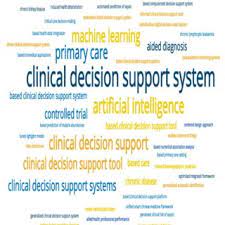Enhancing Patient Care through Clinical Decision Support Systems: Mitigating Alert Fatigue in CPOE and CDSS

Clinical Decision Support Systems: In modern healthcare settings, nurses are critical in collecting, processing, and analyzing vast amounts of patient data to ensure accurate and efficient patient care. To support nurses and healthcare providers in this endeavor, Computerized Provider Order Entry (CPOE) and Clinical Decision Support Systems (CDSS) have emerged as powerful tools for managing patient data and enhancing decision-making. These technologies are designed to provide timely information and alerts based on best practices, enabling healthcare professionals to make well-informed decisions.
Nevertheless, implementing such systems also raises concerns about alert fatigue, which occurs when excessive notifications and alerts desensitize healthcare providers, leading to potential errors and compromised patient care. This paper aims to identify one specific CPOE or CDSS technology, explore how best practice alerts influence decision-making, and discuss strategies to minimize alert fatigue through thoughtful system design.
Clinical Decision Support Systems: Selected CPOE/CDSS Technology
One exemplary Clinical Decision Support System is the “Epic Systems Corporation.” Epic is a widely used electronic health record (EHR) system incorporating CPOE and CDSS functionalities to facilitate efficient patient data management and decision-making.
Clinical Decision Support Systems: Best Practice Alerts and Their Influence on Decision-Making:

Best practice alerts within the Epic EHR system are designed to deliver timely and context-specific information to healthcare providers, primarily nurses, during various stages of patient care. These alerts are generated based on established clinical guidelines, evidence-based practices, and individual patient data. Best practice alerts in Epic can take several forms, such as pop-up notifications, warnings, reminders, and recommendations. These alerts help to:
Ensure Compliance with Guidelines: Best practice alerts offer nurses real-time guidance affiliated with evidence-based clinical guidelines. Suppose a patient’s condition warrants a specific intervention, such as administering antibiotics within a certain timeframe. In that case, the system will trigger an alert if the order still needs to be placed, prompting the nurse to take action promptly.
Prevent Medication Errors: Medication-related alerts are crucial to patient safety. If a nurse attempts to order a medication that might interact adversely with a patient’s current regimen, the system will generate an alert. This helps prevent medication errors and promotes safe medication administration.
Reduce Variability in Care: CDSS best practice signals curtail capriciousness in care by standardizing processes and ensuring consistent protocol adherence. This is particularly beneficial when standardized treatments such as sepsis management significantly improve outcomes.
Support Clinical Judgment: While alerts are valuable, they are not meant to replace clinical judgment. In its place, they enhance by providing relevant information at the point of care. For instance, an alert might recommend a specific diagnostic test based on the patient’s symptoms, helping nurses consider options they might not have initially considered.
Clinical Decision Support Systems: Strategies to Minimize Alert Fatigue:
Alert fatigue can undermine the effectiveness of CPOE and CDSS systems by overwhelming healthcare providers with excessive and often irrelevant notifications. To mitigate alert fatigue and ensure that alerts remain valuable tools, several strategies can be implemented within the design of the Epic EHR system:
Customization and Personalization: Allowing nurses to customize the types and levels of alerts they receive can significantly reduce alert fatigue. Nurses can select the specific alerts relevant to their practice area or patient population, ensuring that notifications align with their workflow and responsibilities.
Severity Gradation: Alerts should be categorized based on severity and urgency. Critical alerts that demand immediate attention should be visually distinct from less urgent notifications. This approach helps nurses prioritize and respond effectively to alerts based on their clinical significance.
Evidence-Based and Relevant Alerts: The system should be designed to deliver alerts directly relevant to the patient’s condition and the nurse’s role. By filtering out alerts that are not pertinent to the situation, nurses are more likely to pay attention to alerts that truly impact patient care.
Intelligent Integration: Integrating CDSS alerts seamlessly into the workflow reduces disruption. Alerts should be triggered at appropriate points in the care process to provide actionable insights without causing unnecessary interruptions.
User Feedback and Iterative Design: Regular feedback is critical in decontaminating the alert system. Healthcare providers, particularly nurses, should be able to provide input on the usefulness and relevance of alerts. The system can then be iteratively improved based on this feedback.
Education and Training: Proper education and training are essential to help nurses understand the rationale behind alerts and how to respond effectively. When nurses comprehend the significance of alerts, they are more likely to engage with them rather than dismiss them.
Conclusion to Clinical Decision Support Systems
Clinical Decision Support Systems, exemplified by the Epic EHR system, have significantly improved how nurses manage patient data and make informed decisions. Best practice alerts within these systems are pivotal in guiding decision-making, promoting evidence-based practices, and enhancing patient safety. However, the challenge of alert fatigue must be addressed.
By implementing customization, severity gradation, relevance filtering, intelligent integration, user feedback, and education strategies, healthcare organizations can design CPOE and CDSS systems that effectively minimize alert fatigue while maximizing their benefits. As technology evolves, the collaboration between healthcare providers and system designers remains essential in creating solutions that balance information dissemination and clinical efficiency.
References to Clinical Decision Support Systems
Agency for Healthcare Research and Quality (2019). Alert Fatigue. [online] Ahrq.gov. Available at: https://psnet.ahrq.gov/primer/alert-fatigue.
Khalifa, M. and Zabani, I. (2016). Improving Utilization of Clinical Decision Support Systems by Reducing Alert Fatigue: Strategies and Recommendations. Studies in Health Technology and Informatics, [online] 226, pp.51–54. Available at: https://pubmed.ncbi.nlm.nih.gov/27350464/.





